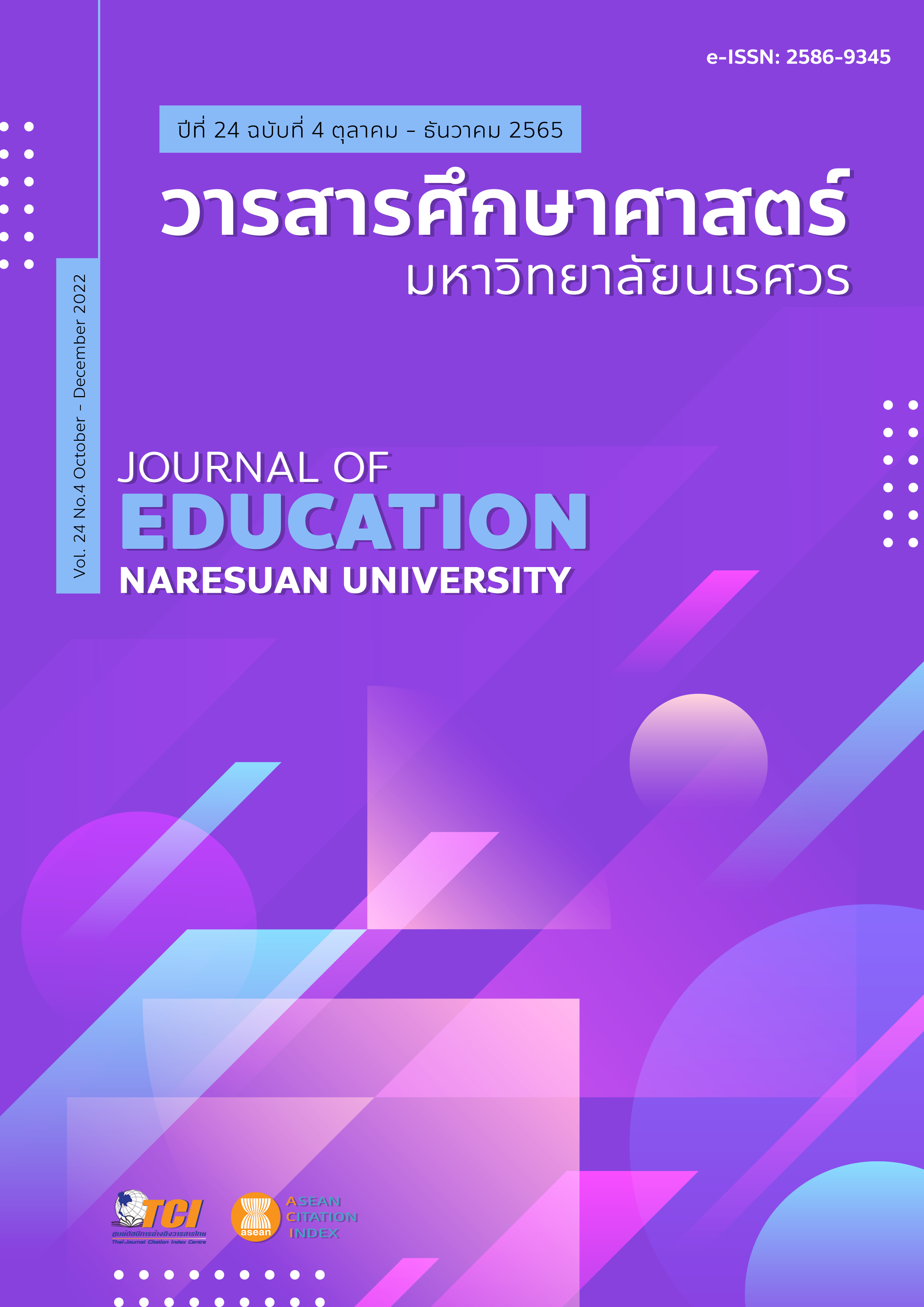CONSTRUCTION OF EVALUATION ACADEMIC MINDSET OF BASIC EDUCATION STUDENTS การสร้างแบบประเมินกรอบความคิดทางวิชาการของนักเรียนระดับชั้นการศึกษาขั้นพื้นฐาน
Main Article Content
Abstract
The purpose of this research was to develop the evaluation instrument of students academic mindset. The sample used in this research were 450 grade 9 students under Office of the Basic Education Commission. The evaluation instrument of students under Office of the Basic Education Commission academic mindset was created. The discrimination quality, construct validity and reliability were then verified. The data were analyzed by descriptive statistics and second confirmatory factor analysis. The research findings were as follows: 1) The evaluation instrument of students under Office of the Basic Education Commission academic mindset are 5 level rating scale 43 items and 5 factors of (1) belonging in academic community, (2) improve ability and intelligence through effort, (3) confidence in being successful, (4) having passion and purpose to learning and
(5) sighting value and relevance to learning. 2) The evaluation instrument of students under Office of the Basic Education Commission academic mindset has content validity as examine by experts. The discrimination (r) is statistically significant at 0.05 and all of 43 items are construct validity as shown by the model fit with
the empirical data. The reliabilities of the evaluation instrument sorted by factors are 0.86, 0.92, 0.86, 0.88 and 0.87, respectively.
Article Details

This work is licensed under a Creative Commons Attribution-NonCommercial-NoDerivatives 4.0 International License.
The owner of the article does not copy or violate any of its copyright. If any copyright infringement occurs or prosecution, in any case, the Editorial Board is not involved in all the rights to the owner of the article to be performed.
References
Barnett, E. (2017). An analysis of the development of positive academic mindsets in diverse IBO schools. Teacher College, Columbia University.
Dweck, C. S. (2006). Mindset: The new psychology of success. Random House.
Farrington, C. A., Roderick, M., Allensworth, E., Nagaoka, J., Keyes, T. S., Johnson, D. W., & Beechum, N. O. (2012). Teaching adolescents to become learners. The role of noncognitive factors in shaping school performance: A critical literature review. Chicago: University of Chicago Consortium on Chicago School Research.
Foundation of Virtuous Youth. (2016). The development of growth mindset. Retrieved May 1, 2016, from http://www.cepthailand.org/index [in Thai]
Hanson, J. (2017). Testing the difference between school level and academic mindset in the classroom: Implications for developing student psycho-social skills in secondary school classrooms. Journal of Education, 3(1), 44-63.
Rungrueng, C., & Chadcham, S. (2016). Growth mindset: New approach of human potential development. Research Methodology & Cognitive Science Burapha University, 14(1), 1-13. [in Thai]
Snipes, J., Fancsali, C., & Stoker, G. (2012). Student academic mindsets interventions: A review of the current landscape. San Francisco, CA: Stupki Foundation.
Wannapayun, N. (2017). Teacher’s Approach and Development of Students’ Mindset. Hatyai Academic Journal, 15(2), 181-195. [in Thai]
Wongwanich, S. (2017). Supporting document of the 25th Thailand Measurement Evaluation and Research Conference. Nonthaburi: Sukhothai Thammathirat Open University. [in Thai]


